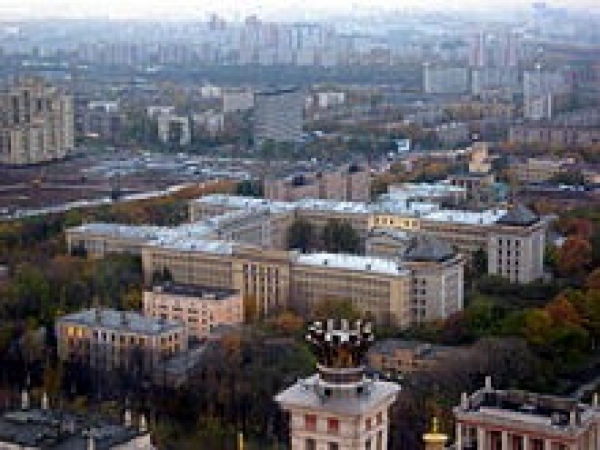http://www.msu.ru/
Description
The Faculty of Computational Mathematics and Cybernetics MSU (CMC MSU) is a leading centre for training specialists in Applied Mathematics, Computational Mathematics, Information Theory and Programming.
Founded in 1970, the Faculty owes its existence to one of the most prominent Russian scientists, Andrey N. Tikhonov, Full Member of the USSR Academy of Sciences, whose efforts were supported by M.V. Keldysh, the then President of the USSR Academy of Sciences. Together with Tikhonov as the dean, the original academic staff of the Faculty contributed substantially to its development and growth, among them L.S. Pontryagin, Full Member of the USSR Academy of Sciences, L.N. Bolshev and S.V. Yablonsky, both Corresponding Members of the USSR Academy of Sciences, and Professors I.S. Berezin and Y.B. Germeyer.
The applied mathematics and information theory schools, leaders in the field in Russia, have been founded by the faculty academics working on the theory of boundary-value problems, mathematical physics and spectral theory of differential equations, nonlinear dynamic systems and control processes, computational methods and mathematical modeling, game theory and operations research, optimal control theory and systems analysis, mathematical cybernetics and logic, probability theory and mathematical statistics, applied programming and programming theory, supercomputing, information security, big data mining, computer graphics and image processing.
Nowadays, there are 20 Departments at CMC MSU: Mathematical Physics, Computational Methods, Computational Technologies and Modeling, Research Automation, General Mathematics, Functional Analysis and its Applications, Non-Linear Dynamic Systems and Control Processes, Operations Research, Optimal Control, System Analysis, Mathematical Statistics, Mathematical Methods of Forecast, Mathematical Cybernetics, Computing Systems and Automation, Algorithmic Languages, System Programming, Supercomputers and Quantum Informatics, Information Security, Intelligent Information Technologies, and Department of English Language.
Among the heads of CMC MSU Departments there are Full members of the Russian Academy of Sciences (RAS) A.I. Avetisyan, B.N. Chetverushkin, Y.G. Evtushenko, A.B. Kurzhansky, E.I. Moiseev, Y.S. Osipov, I.A. Sokolov, E.E. Tyrtyshnikov, Y.I. Zhuravlev, Correspondent Members of RAS R.L. Smelyansky and V.V. Voevodin . Besides, Full Members of RAS V.P. Dymnikov, K.V. Rudakov, G.I. Savin and Corresponding Members of RAS S.M. Aseev, Yu.V. Vasilevsky, A.V. Il'in, V.N. Lykosov, T.E. Moiseev, Yu.S. Popkov, Yu.G. Pospelov, V.F. Tishkin, Yu.A. Flerov, A.A. Shananin work at CMC MSU now.
The Faculty of Computational Mathematics and Cybernetics offers two 4-year Bachelor’s Degree programs: Applied Mathematics and Informatics (AMI) and Fundamental Informatics and Information Technologies (FIIT). The Bachelor’s degree holders may enroll in 2-year Master’s Degree program, admission granted on a competitive basis. Master’s and Specialist’s degree holders may enroll in the 4-year postgraduate school.
Both AMI and FIIT Bachelor’s Degree programs are intended to train IT-professionals for areas that require fundamental knowledge to create and use new IT systems, products and services, to develop and apply mathematical modeling of processes and objects, modern mathematical methods and information technologies in science, technology, economy, finance, administration and project design.
Bachelor curricula include the following mathematical disciplines: mathematical analysis, theory of functions of a complex variable, functional analysis, linear algebra, analytical geometry, differential equations, mathematical physics, probability theory, mathematical statistics, mathematical logic, discrete mathematics, numerical analysis, operations research, game theory, optimal control theory, optimization methods. A broad range of lectures and practical courses on computer engineering and programming include algorithms and algorithmic languages, computer systems architecture and assembly language, system software, application software, computer graphics, parallel and high performance computations, databases, operating systems, artificial intelligence, object-oriented programming, computer networks, network technologies, programming systems, information security, mathematical methods of image processing, machine learning, etc. The curricula also include an obligatory course of the English language and a number of the Liberal Arts courses.
Computer practice, including work on high-performance computing systems, occupies a significant place in the study. During the training, students learn to work in several operating systems and learn at least three programming languages. We have a few classrooms with Intel-based PCs with multimedia equipment and specialized software, a few classrooms equipped with UNIX workstations, connected to a local area network with fiber optic Internet access. There are supercomputer IBM Blue Gene/P, parallel computing system IBM Polus, graphic workstation Tesla CMC, which are available for scientific research and student practice.
While in the first two years of study the main focus is on the basic training in mathematics and theoretical and applied programming, in their third year students are to specialize in a major area, attending special seminars at the department they choose and working under the guidance of a scientific adviser.
CMC MSU students are involved in research work which goes hand in hand with their studies and is carried out at the Faculty or at the affiliated academic institutes and laboratories, namely the laboratories of Computer Graphics and Multimedia, Mathematical Methods of Image Processing, Statistical Analysis, Discrete Controlling Systems, Industrial Mathematics, Computer Systems, Open Information Technologies, Programming Technologies, Mathematical Modeling in Physics, Mathematical Physics, Computational Electrodynamics, Difference Methods, etc.
Specific details
University
Lomonosov Moscow State UniversityLocation
GSP-1, Leninskie Gory, Moscow, 119991, Russian Federation
